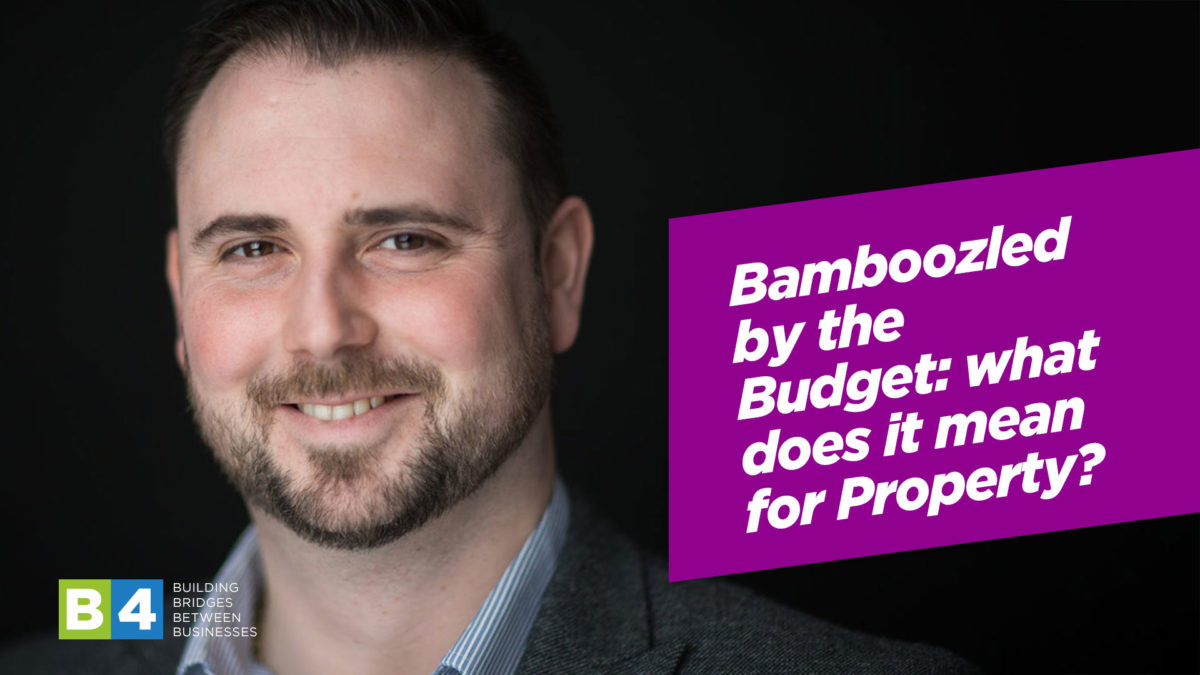
Bamboozled by the Budget: what does it mean for Property?
Look, I’m perplexed and I’m conflicted. I happily admit – and often do – that I’m a natural born Tory-skeptic. Nevertheless, I can’t help being impressed by Rishi, time and again, in spite of myself. But then again, yesterday’s budget has been more New Labour than One Nation Conservative.
I won’t bang on into exhaustive detail about what was in the budget – but as far as Covid-recovery budgets might go, this one offers help to struggling families with a softening of cuts to Universal Credit; there will be a real terms increase in spending across every governmental department, with a £150bn boost to departmental spending; there is £4.8bn grant funding to be made available to local governments for distribution; there will be discounted business rates for many high street businesses… And, beer is getting a bit cheaper.
Inflation is coming, that seems to be without a doubt; but at the same time, wages will increase, offsetting some of that pain (I am definitely not saying all of it).
As I say, I don’t want to get bogged down in the general detail – that will be picked apart by no end of other commentators (and for two fantastic takes on it, check out what Matt Williams of Cypher Accountants, and Daniel Barnes of Barnes Wealth Management, both have to say). I am here to talk about property, the property market, and what the budget means.
The answer is: not much.
He’s more or less left it alone. And our first reaction as an industry is to feel a bit bereft, I think! Perhaps it is because the property market has been in his sights so often, and has benefited from his attention previously (on the surface at least) – his stamp duty break last year certainly fuelled a lot of the market growth (and house price growth) that we saw over the past few months… for better or for worse.
This budget has been much more muted in regards to property, and where it has featured at all it has largely – and not in an unwelcome way – been with regards to money being made available to support affordable housing: £11.5bn to be made available for the building of 180,000 new affordable homes by 2025/26, and £1.8bn to be given to bringing brownfield sites forward for residential development.
I am disappointed that the opportunity was not taken to raise the stakes to push property developers and new builders to invest in sustainable building and the en-masse construction of Net Zero Carbon homes. That could have been done. And I do think it is an opportunity missed to not overhaul the stamp duty system – but then I’ve been whingeing on about that for years. It is estimated that the treasury benefited by around £13.5bn in revenues whilst the stamp duty holiday was in place, but it seems lessons have not been learned. On the other hand, I also think this signals that the UK Government has a lot of confidence in the property market, and that we can expect property sales to remain buoyant well into 2022.
So perversely, for we property professionals, it seems that the near total disinterest in the property industry is our reason to be cheerful about the state of our marketplace for the months ahead.
But Rishi – as far as a stamp duty overhaul goes – please bear it in mind won’t you, for this time next year…
Photo Credit: UK Government, OGL 3 <http://www.nationalarchives.gov.uk/doc/open-government-licence/version/3>, via Wikimedia Commons
More in Local Government

Exciting January Events for B4 Members: A Great Start to 2025
January 2025 promises an exhilarating line-up of events for B4 Members, offering opportunities to connect, celebrate, and be inspired. With three unique gatherings, B4 Members can look forward to forging meaningful connections, experiencing rich cultural traditions, and engaging with influential figures in the local community. Here’s a closer look at what’s in store:

OxLEP Skills: Opportunities for Oxfordshire Employers 2022-2023
If you were ever wondering what opportunities there were for Oxfordshire employers to engage with future generations, look no further.

Oxfordshire’s green champions unite to host inaugural OX to ZERO conference
OxLEP joined forces with the leading Oxfordshire voices of the University of Oxford, Harwell Campus and the Culham Science Centre-based UKAEA to host the first-ever OX to ZERO conference (1 September).
From this author

Bank of England raises interest rates for fifth consecutive time
B4 members comment on the impact it could have on their businesses.

Oxford estate agent takes on Muscular Dystrophy UK’s 40th Town and...
An Oxford estate agent is running Muscular Dystrophy UK’s 40th Oxford Town and Gown as part of his 40th birthday fitness challenge – and in memory of his late cousin.

Where can you work in the future that’s good for you?
On this edition of The Business Brunch, we are joined by B4 members Mike Jennings of The Jennings Group, Jonathan Finnerty of Green Unit and Rowan Waller of Wallers Estate Agents as they discuss where we all work in the future that’s good for us.

